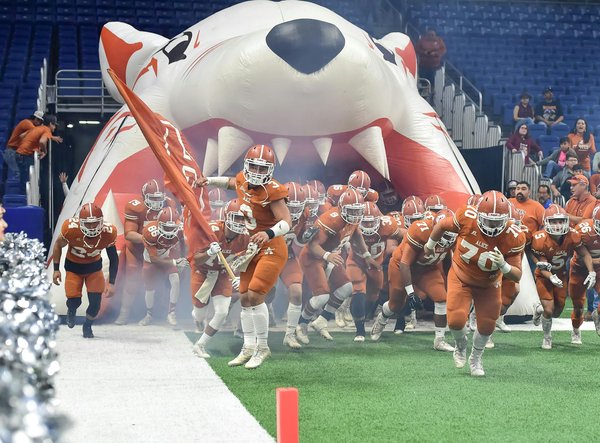
Exploring life's best insights together
Welcome to a place where curiosity thrives. Dive into expert guides, inspiring stories, and practical wisdom spanning everything from automotive trends to wellness tips. We share knowledge freely, because great information should be accessible to everyone.
Explore Every Corner of Knowledge
From your garage to your kitchen, from your portfolio to your wardrobe
Automotive
Cars, vehicles and driving
Business
Business and economy
Cooking
Recipes and culinary arts
Finance & real estate
Finance, investment and property
Health
Health, wellness and wellbeing
Home & living
Home, decor and lifestyle
News
Latest news and current events
Pets
Pets, animals and companions
Sports
Sports, fitness and competition
Technology
Tech, gadgets and innovation
Woman / fashion
Fashion, beauty and lifestyle

Knowledge That Empowers Your Everyday
We believe that everyone deserves access to quality information. Our writers dig deep into topics that matter, delivering well-researched articles that help you make informed decisions and discover new perspectives across all areas of life.
- In-depth guides written by passionate contributors
- Fresh content updated daily across 11 categories
- Practical insights you can apply immediately
- Community-driven discussions and shared experiences
What Our Readers Say
Real feedback from our community
« I started following this site for cooking tips and ended up discovering their automotive section. The depth of research and clarity in every article is impressive. It's become my go-to resource for almost everything. »
« Finally, a place that covers multiple topics without the fluff. The finance guides helped me understand investment basics, and the home living articles inspired my recent renovation. Quality content across the board. »
« I appreciate how the writers respect their readers' intelligence. No clickbait, no oversimplification—just honest, informative content that helps me learn something new every day. »
Latest articles
Our recent publications

How Could Sustainable Practices Transform the Future of the UK Automotive Industry?
Sustainable automotive manufacturing in the UK involves integrating eco-friendly car production meth...

How is the UK automotive industry preparing for future regulatory changes?
Understanding UK automotive regulations is essential as the industry navigates recent and upcoming s...

How Will Future Automotive Technologies Impact Urban Planning in the UK?
Future automotive technologies UK are driving significant shifts in urban mobility, with electric ve...

Are Emerging UK Startups Poised to Revolutionize the Business Landscape?
The UK startup landscape has witnessed remarkable growth and momentum in recent years, reflecting a ...

How Can UK Businesses Adapt to Emerging Trends in 2024?
Navigating UK business trends 2024 requires proactive business adaptation to stay competitive amid r...

What Are the Success Factors for British Companies in the Global Market?
British companies aiming for global market success must focus on several intertwined success factors...

How can you create a perfect Cornish pasty at home?
Making a homemade Cornish pasty involves combining precise ingredients with traditional techniques t...

How Can You Incorporate British Culinary Traditions into Modern Recipes?
Traditional British cuisine is rooted in hearty, straightforward dishes that highlight local ingredi...

How Did Traditional UK Cooking Recipes Evolve Over Time?
UK culinary history is deeply rooted in historical British recipes that reflect the region's cultura...

How are interest rates affecting UK real estate financing options?
Interest rate changes directly influence mortgage rates and overall borrowing costs in the UK proper...

What factors are driving the growth of the UK real estate finance sector?
Understanding the economic drivers behind the UK real estate finance sector is essential to grasp th...

What Factors Make UK Real Estate Investment Lucrative?
Understanding the reasons to invest in UK property starts with its notable market stability and inve...

Discover the health benefits of premium superfood supplements
The global dietary supplements market reached $177.5 billion in 2026, reflecting our growing commitm...

How are mental health services evolving within the UK healthcare system?
The evolution of mental health services in the UK has marked a significant shift in both policy and ...

How Can You Improve the UK's Health System?
The UK health system challenges primarily stem from persistent funding shortages, which constrain th...

What Are the Potential Benefits of Nutritional Supplements for Mental Health in the UK?
Nutritional supplements UK have become increasingly popular as part of broader strategies for mental...

How Can Sustainable Living Practices Transform Your Home Environment?
Sustainable living focuses on reducing environmental impact through conscious decisions in everyday ...

How can you improve energy efficiency in your UK living space?
Improving UK home energy efficiency starts with assessing key areas like loft insulation, wall cavit...

How Can You Maximize Space in Your UK Home for a More Comfortable Living?
Small UK homes demand space-saving solutions that truly work. To maximize home space effectively, it...

Explore stunning apartments for sale in chamonix barnes
Discover exceptional apartments in Chamonix offered exclusively by BARNES, where luxury meets alpine...

What are the UK's initiatives to promote digital literacy?
Government initiatives have played a central role in shaping the UK digital literacy policy, establi...

How Can You Ensure a Smooth Transition for Pets Moving to the UK?
Ensuring compliance with UK pet import requirements is crucial for a hassle-free pet relocation to t...

How do UK pet ownership trends compare globally?
Understanding UK pet ownership rates requires placing them within the broader landscape of global pe...

What Are the Essential Questions to Ask Before Adopting a Pet in the UK?
To determine if pet ownership suits your lifestyle, consider several key factors. Lifestyle compatib...

How Has the Legacy of British Sports Shaped Global Trends?
The origins of British sports lie deeply rooted in the country's early history, where activities lik...

What Impact Does Hosting Major Sporting Events Have on the UK Economy?
Major sporting events in the UK consistently generate a direct economic impact by stimulating spikes...

What Unique Traditions Make UK Sports Events Stand Out?
The United Kingdom is renowned for its rich sporting culture, which is deeply embedded in the fabric...

Create your unique love story with an ai story generator
No one wishes to wait for destiny anymore—today, you shape your perfect romance differently. The ans...

How are UK tech companies influencing global e-commerce?
Leading UK tech companies have emerged as pivotal forces within the global e-commerce ecosystem. Not...

What impact does UK technology have on the education sector?
Innovations in UK education technology have rapidly transformed classroom dynamics and administrativ...